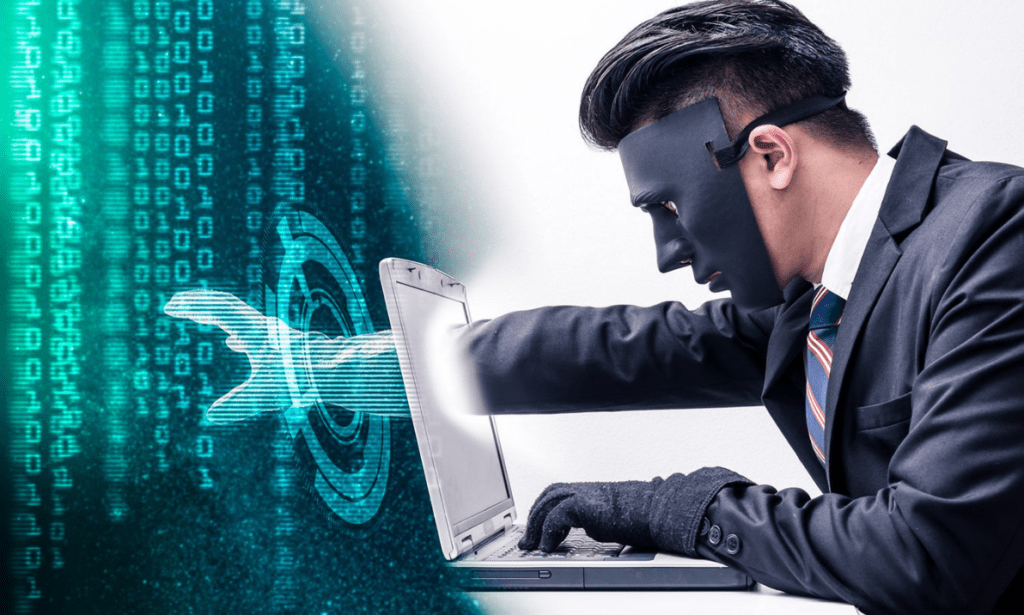The statistics are staggering. According to a recent study by Javelin Strategy & Research in 2020, identity theft cost consumers $56 billion, and the numbers continue to rise. That’s an increase of 17% over the previous year, and cybercrooks are continuously finding new ways to steal critical information that they can use to steal money, which includes personally identifiable information (PII).
So, what is PII? It’s basically all of the personal information that you store on your computer and other devices that includes your name, address, social security number, bank account information, taxpayer information, medical record numbers, and other sensitive information that would bring a smile to every cyber thief on the planet. Once a criminal has that data, they can use it to create new credit card accounts, make purchases using your name and information – with no intention of ever paying for it.
This leaves the victim with multiple problems, both legal and financial. Credit companies will begin calling, credit reports will show negative payment information, and it will take a lot of time and money to clear up the mess that’s been created.
How do cybercriminals access your PII?
It could start with something as simple as losing your wallet, which contains your driver’s license number, credit card numbers, and in some cases, your social security number. It could also come from a data breach, which is happening more and more frequently. A cybercrook can hack into your laptop or other device if you use a public WiFi network at a coffee shop or airport lounge, for example, and that’s just for starters.
More and more hackers are using phishing and fraud scams to access people’s PII – despite the constraint efforts of the Federal Trade Commission (FTC), the FBI, the IRS and other agencies alerting people to the ongoing phone and fraud scams. In addition, hackers love to scour through people’s search sites, where volumes of unauthorized personal information are available.

Impact on victims from PII theft
What do cybercriminals do with the stolen PII? The damage can be substantial, as many victims find out. The cybercrooks start by applying for loans and new credit cards in the victim’s name, racking up huge charges. They file phony tax returns, and get refunds sent to a different address. Bank accounts are ravaged in ways that run from credit card fraud, to illegal withdrawals of funds.
The criminals also steal medical account numbers and information in order to purchase drugs and have medical procedures performed, and the victim only finds out once the hospital or insurance company starts asking for payments. Medical identity theft has become a major problem. They also apply for a driver’s license, which is used to assume the victim’s identity, and is then given to authorities if they’re involved in an accident, or are arrested for other crimes. They’ll also log in to various accounts and change the billing address, so the victim won’t even know the fraud has taken place. The list goes on and on, and it can ruin a person’s life due to credit ratings, unpaid bills and charges, and even criminal complaints.

Protecting your PII
The best way to prevent problems is to protect your PII before it is stolen. There are many ways you can do this, and each one is as important as the next. Most importantly, it’s best to remove all of your unauthorized personal information from people’s search sites, which can prevent cybercriminals from accessing your PII. You can do this yourself, but there are more than 100 different people search sites including Pipl, Intelius and Whitepages, and each one has their own way of removing data and opting out of the site. Always use a strong password, and use a different one for each account you access. A strong password is 10 characters long, so it would be hard to manage these for multiple accounts. Instead, use a password manager like 1Password, LastPass and Kaspersky. Another tactic is to never use public WiFi – instead, use a Virtual Private Network (VPN), to keep cybercrooks from seeing your online activity. Some of the top ones include TunnelBear, IPVanish and NortonSecurity.
Many experts advise people to proactively freeze their credit, which is available by contacting one of the top three credit bureaus including TransUnion, Experian and Equifax. Once you freeze your credit, nobody is able to open a new account in your name. It is free, and doesn’t affect your credit score. If you know for certain that you haven’t been a victim of identity theft, another option available is to file a fraud alert to the credit bureaus. This is also free, and is often used by people who may have lost their wallet or other identification. In both instances, you only need to contact one of the credit bureaus – they must inform the other two about your credit freeze request or credit fraud alert.

Other things you can do are based on common sense and best practices. Never respond to an email from an unknown sender – it’s like opening a door to malware, ransomware, and other nefarious software that can be instantly downloaded to your computer or other devices. Don’t leave your computer unattended, especially when it’s unlocked. Also, it’s wise to never carry your social security card in your wallet, because if your wallet is lost or stolen, your likelihood of identity theft increases substantially. These are many strategies and tactics that will help to protect your personally identifiable information (PII). While they may involve work and can be time-consuming, protecting your PII is extremely important to help prevent identity theft. The more you protect your information, the likely your chances of falling victim to a cyber thief.



